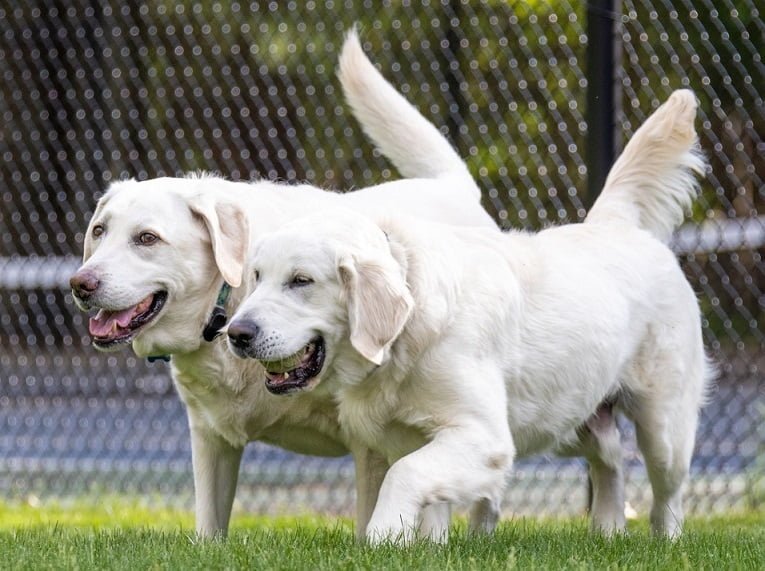Labrador Retrievers are undoubtedly one of the most beloved and popular dog breeds worldwide. Known for their friendly nature, boundless energy, and athletic abilities, these dogs require a well-rounded and nutritious diet to support their overall health and well-being. Providing optimal nutrition for your Labrador Retriever is vital in ensuring their vitality, longevity, and resistance to common health issues. In this article, we will delve into the essential aspects of Labrador Retriever nutrition, including their specific dietary needs, the importance of balanced nutrition, selecting the right dog food, addressing dietary issues, and considering special requirements for puppies and senior dogs.
Understanding Labrador Retriever Nutritional Needs:
Labrador Retrievers have unique nutritional requirements based on their size, metabolism, and activity levels. These dogs are generally active and energetic, necessitating a diet that provides them with adequate calories to fuel their daily activities. Additionally, Labrador Retrievers are prone to certain health conditions, such as obesity, hip and elbow dysplasia, and allergies, which further emphasize the need for a carefully tailored diet. Understanding these specific nutritional needs is essential for ensuring optimal health and preventing potential health issues.
The Importance of Balanced Nutrition:
Feeding your Labrador Retriever a balanced and nutritious diet is crucial for maintaining their overall health and well-being. A balanced diet ensures that your dog receives the right proportions of proteins, carbohydrates, fats, vitamins, and minerals. Proteins are essential for muscle development and repair, while carbohydrates provide energy. Fats play a vital role in supporting healthy skin and coat, as well as providing concentrated energy. Vitamins and minerals are necessary for various bodily functions and help boost the immune system. A well-balanced diet helps prevent deficiencies and promotes optimal health throughout your Labrador Retriever’s life.
Essential Nutrients for Labrador Retrievers:
To meet the nutritional needs of your Labrador Retriever, it is important to understand the essential nutrients they require. High-quality proteins, such as those derived from animal sources like meat or fish, are crucial for muscle development and repair. Carbohydrates from sources like whole grains and vegetables provide energy and essential dietary fiber. Healthy fats, including omega-3 fatty acids, are beneficial for maintaining healthy skin, coat, and joint health. Vitamins, such as vitamins A, D, and E, contribute to overall health, while minerals like calcium and phosphorus are important for bone development and maintenance.
Determining Portion Sizes:
Determining the appropriate portion sizes for your Labrador Retriever is crucial to prevent underfeeding or overfeeding. Portion sizes depend on various factors, including the dog’s age, weight, activity level, and metabolism. Puppies require more frequent feeding and higher calorie intake than adult dogs, while senior dogs may have reduced calorie needs. It is important to monitor your Labrador Retriever’s body condition and adjust portion sizes accordingly to maintain a healthy weight and body condition.
Selecting High-Quality Dog Food:
Choosing the right commercial dog food is essential for meeting your Labrador Retriever’s nutritional needs. Look for high-quality dog food that uses premium ingredients, including real meat or fish as the primary protein source. Avoid products that contain artificial additives, fillers, and by-products. Reading and understanding the nutritional labels on dog food can provide valuable information about the ingredients, nutrient composition, and feeding guidelines. Opting for reputable and well-established dog food brands that prioritize quality and safety can help ensure the nutritional adequacy of the food you provide to your Labrador Retriever.
Homemade Diets vs. Commercial Dog Food:
While some dog owners prefer homemade diets for their Labrador Retrievers, it is crucial to consider the potential advantages and drawbacks. Homemade diets allow for more control over ingredients and preparation methods, but they require careful planning to ensure nutritional balance. It is essential to work with a veterinary nutritionist or consult your veterinarian to develop a homemade diet that meets all of your Labrador Retriever’s nutritional needs. On the other hand, commercial dog food often undergoes rigorous testing to meet specific nutritional standards and can provide convenience and peace of mind. It is important to weigh the pros and cons and make an informed decision based on your dog’s individual needs and your own capabilities.
Addressing Common Dietary Issues:
Labrador Retrievers are prone to certain dietary issues that require special attention. Obesity is a common problem in this breed due to their love for food and tendency to overeat. Feeding appropriate portion sizes, avoiding excessive treats, and providing regular exercise are crucial in maintaining a healthy weight. Additionally, Labrador Retrievers can be susceptible to food allergies or sensitivities. Identifying and eliminating potential allergens from their diet can help alleviate allergic reactions. Regular veterinary check-ups and discussions about dietary concerns can assist in managing and preventing these common dietary issues.
Feeding Schedule and Treats:
Establishing a regular feeding schedule is essential for Labrador Retrievers. Puppies generally require more frequent meals, while adult dogs can be fed twice a day. Splitting the daily portion into multiple meals helps prevent bloating and promotes better digestion. When it comes to treats, moderation is key. Treats should only make up a small portion of your Labrador Retriever’s overall diet and should be nutritious and low in calories. There are various healthy and natural treat options available that can be used for training or as occasional rewards.
Hydration and Water Needs:
Proper hydration is crucial for Labrador Retrievers, especially during hot weather or periods of increased physical activity. Always ensure that fresh, clean water is readily available for your dog. Monitor your Labrador Retriever’s water intake, particularly during warm weather, to prevent dehydration. If your dog shows signs of excessive thirst or dehydration, consult your veterinarian as these could be indicators of an underlying health issue.
Special Considerations for Puppies and Senior Dogs:
Puppies and senior Labrador Retrievers have specific nutritional requirements that differ from those of adult dogs. Puppies require a diet that supports their rapid growth and development. High-quality puppy food with appropriate levels of proteins, fats, and essential nutrients is essential during this stage. Senior Labrador Retrievers may have reduced activity levels and metabolism, so their calorie intake needs to be adjusted accordingly. Special senior dog formulas are available that cater to their specific needs, including joint support and digestive health.
Consulting with a Veterinarian:
Every Labrador Retriever is unique, and their nutritional needs may vary based on factors such as age, health conditions, and individual metabolism. It is highly recommended to consult with a veterinarian to develop a tailored nutrition plan for your Labrador Retriever. A veterinarian can assess your dog’s overall health, provide personalized dietary recommendations, and guide you in making informed decisions regarding their nutrition. Regular veterinary check-ups allow for ongoing monitoring and adjustments to the diet as your dog’s needs change over time.
Conclusion:
Feeding your Labrador Retriever for optimal health requires careful consideration of their specific nutritional needs. Providing a balanced and nutritious diet that meets their energy requirements and supports their overall well-being is essential. Whether you choose commercial dog food or opt for a homemade diet, ensuring nutritional adequacy, portion control, and regular veterinary consultations are key. By prioritizing your Labrador Retriever’s nutrition, you are investing in their long and healthy life, filled with energy, vitality, and companionship.







